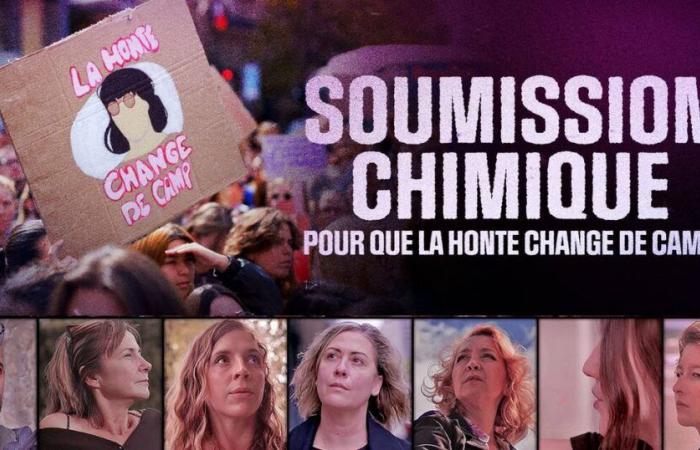She lends her voice, her story, her suffering to the service of other victims. Since the revelation, in 2020, of the system of violence under chemical submission put in place by her father, Dominique Pelicot, to rape and have her mother, Gisèle Pelicot, raped by dozens of strangers, Caroline Darian has been fighting. In the documentary Chemical submission: so that shame changes sidesbroadcast on France 2 this Tuesday, January 21 in the evening, it recalls its singular status: “I am the daughter of the victim and also, what is even harder to bear, from the executioner.» Before the opening of the resounding trial in Avignon in September, she felt alone for a long time, “whistleblower [via son association M’endors pas, créée en 2023, ndlr] in a society that refused to listen to these victims who were drugged to be raped.”
While the voice of his mother, Gisèle Pelicot, “a heroine of modern times”, but also hers and those of her two brothers resonated throughout the world, she takes advantage of this rare moment of listening to carry this cause, through this film written by Linda Bendali and Andrea Rawlins-Gaston. Following the common thread of this historic trial, at the end of which her father was sentenced to twenty years of criminal imprisonment and the 50 co-defendants found guilty, Caroline Darian sets out to demonstrate the ravages of the modus operandie “systemic” what is chemical submission, “the final stage of male domination”, she insists. Alongside him, four women aged 22 to 53, a 16-year-old teenager and a 48-year-old man testify to the violence suffered in the family, professional or even festive context, showing that chemical submission is deployed in all spaces. It’s a “perfect rape that leaves no trace”summarizes Katia, 53, in the introduction.
Dispossession of their bodies
Through their stories and that of Caroline Darian, the documentary deciphers the scourge of chemical submission, challenging preconceived ideas: in two cases out of three, the substances administered are medications (sleeping pills, anxiolytics, painkillers, antiepileptics or even antiallergics). . The experiences of these victims intertwine, this feeling that their bodies are failing them, of being dispossessed of them, sometimes amnesia… One victim in two does not remember anything, like Gisèle Pelicot, whose husband sedated with anxiolytics, but also like Zoé, who was 15 years old and “wake up across the slope against a tree”, in 2006, naked after drinking a little alcohol at the music festival. She is now a general practitioner and has never been trained in chemical submission, like most caregivers.
-Some victims remain aware of the abuse inflicted on them, without being able to react, like Rénald, 53 years old today. He was 17 when a man he met in a nightclub raped him under chemical subjugation. “He handles me like a piece of meat […] I am aware of everything, I see everything but I could no longer react.” Drugs and medications are eliminated very quickly in the blood and urine. Only a hair analysis can reveal substances administered several months previously. The long brown hair of Lilween, 16, made it possible to detect that her father was administering sleeping pills, prohibited for children under 15 and available without a prescription, in his yogurts to inflict sexual violence on her from the age of 9. He was sentenced to fifteen years of criminal imprisonment. Despite the presence of sperm in his samples and the presence of anxiolytics in his hair, Katia’s attacker was acquitted.
Victim of the capture of immodest images, taken without her knowledge by her father, Caroline Darian is also destroyed by this certainty of having been the victim of chemical submission. In the absence of tangible evidence, Dominique Pelicot, who denies it, was not prosecuted for these facts. While a government mission is underway, led by Sandrine Josso, Modem MP herself a victim, this documentary is a call to act at every level, health, justice, politics, and never again let the victims of destitute chemical submission.





